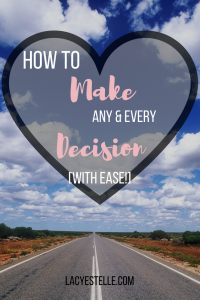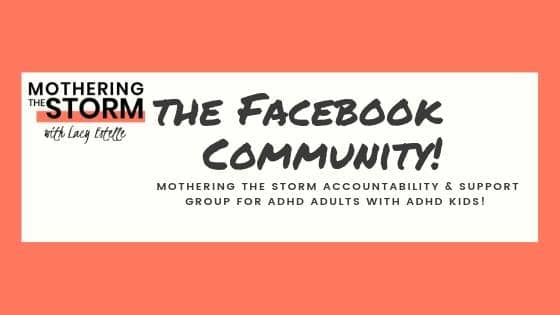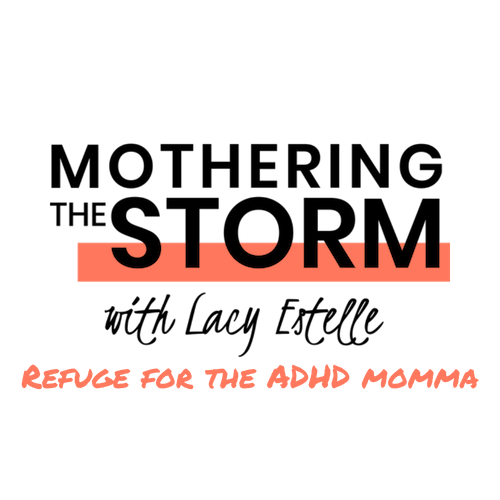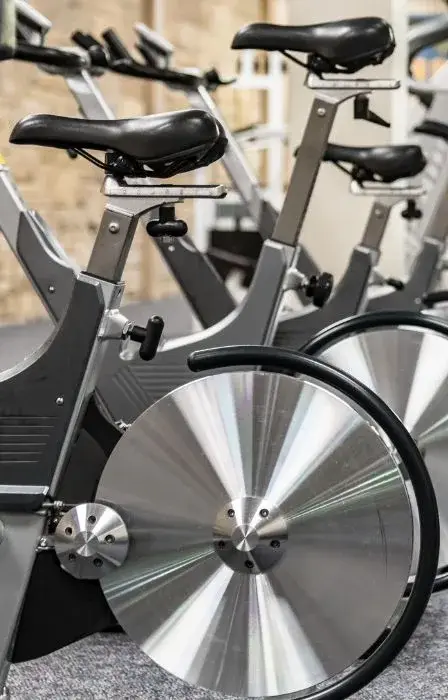This post may contain affiliate links. This means, if you make a purchase from a link on this page, I may receive a small commission at no extra cost to you. You can find our entire disclaimer here.
Tell someone else!
Let’s face it: Decision making is like a wet blanket to the spontaneous person.
If you’re a creative thinker strategic decision making feels unnecessary. Why can’t we all fly by the seat of our pants and take things as they come?
Here’s why: Because goals cannot be accomplished without strong decision-making skills.
Make no mistake; Decision making is a skill. And a learned one at that.


Click Here to Join the Mothering the Storm Facebook Group! An Encouragement Group For Parents who have ADHD and are also caring for an ADHD Child!
If you’re a creative, outside the box thinker like me, you’ve made a few not-so-great or did-not-go-as-planned decisions.
How about that MLM company that you posted on Facebook about for months then fell off? Or that house you moved into but couldn’t honestly afford? Maybe you’re like me and dated the wrong guy…for the 7th time? No? Well regardless…
When your next GREAT CHOICE arrises in your life you start to hear people say things like:
“Are you sure you want to do that?”
“I just feel like that’s not something you should do, you’re not really cut out for it.”
“Are you certain this time will be different?”
“Well, I’m just telling you, don’t get your hopes up or hold your breath.”
For a considerable amount of time, after I made my last impulsive decision (the one that resulted in divorce), I was scared to make any sort of commitment.
Yes, you read that right I couldn’t make up my mind about well, anything.
I couldn’t pinpoint why I was so wishy-washy until I changed the way I made decisions.
Since that change, every decision is more comfortable, and every choice and goal is more attainable than before.
Are you ready to know what I changed, so you can change it too?
Here it is:
I stopped asking for others opinions on my decisions.
I instead
started
Listening to,
[wait for it]
myself.

That means I stopped:
Calling my friends to ask for advice on; anything.
Asking my parents their opinion on a project idea.
Requiring approval from any of my peers in regards to whether my ideas were good, bad or indifferent.
Turns out, my thoughts on my ideas are the ones that I should value most.
Here are the questions I used to ask myself while making a decision:
- What is the purpose?
- Will it serve its purpose?
- Is it beneficial and to whom?
- Talk to a respected peer or elder about the decision.
Get their possible bias and unknowledgeable, probably-not-going-to-directly-effect-them-opinion on my decision. - Weigh my final decision against their opinion
Afterward, one of two things would happen:
- If the person I spoke to mentioned even a single negative comment about my idea, the words would live inside my brain while I pursued it. Eventually, I would succumb to the negativity and give up. Feeling that those opinions were likely correct after all and I shouldn’t have even tried.
OR - I wouldn’t attempt it at all.
How sad is that?! Anyone of the choices in my past could’ve been life-changing for me. Yet, I couldn’t get past someone else’s concerns enough to see my goal through. (Read How to Embrace Failure and Start Over!)
Here is how I make a decision now:
- What is the purpose?
- Will it serve its purpose?
- Is it beneficial and to whom?
- Map it out– How will I accomplish it? Map the steps I will take.
- What is the cost to me? What is the price to my family?
DECISION: Yes Or No. Now or Not Now.
With these steps, I have moved past needing others approval over my decisions. Without that need, my choices and the goals they effect are completed faster. I weigh the option against the only thing that matters: My sum of its value!
Example:
You’re considering changing Jobs.
- What is the purpose?
To provide income and opportunity. - Will it serve its purpose?
The income would stay the same, but the opportunity for a raise would be available sooner than the Job you are currently in. So, yes. - Is it beneficial and to whom?
YES, the opportunity for growth and raises would benefit my family and me greatly. - Map it out: How will it be accomplished? What steps need to be taken?
If you have the job already, you need to give two-weeks notice to your current position. To ensure that your new post remains beneficial you need to find out what your performance level needs to be to achieve that raise. - What will this cost me? Will my family have to make any sacrifices?
One week of no pay due to the pay-day schedule change. No long-term cost to my family.
DECISION: Yes, now.
Do you see how you can ask these questions about ANY decision you have to make? Debating on dating a new guy? What’s the purpose of the relationship? Will it serve its purpose? Your answer will be in if you have time to invest in a new relationship and your perspective of him as a human being.
Want to buy that fancy $80 dress in the store window? What’s the purpose, and eventually what’s the cost?
Cut out the need for other’s approval.
YOU DON’T NEED IT!You only need your own approval!
If the decision is of no cost to that person, their opinion doesn’t matter!
SO stop listening to what other people think about your decisions.
Stop asking them what they think you should do at all.
Start asking yourself and then make a choice.
Do or Do not.
That is all there is to it.
Happy Decision Making!









